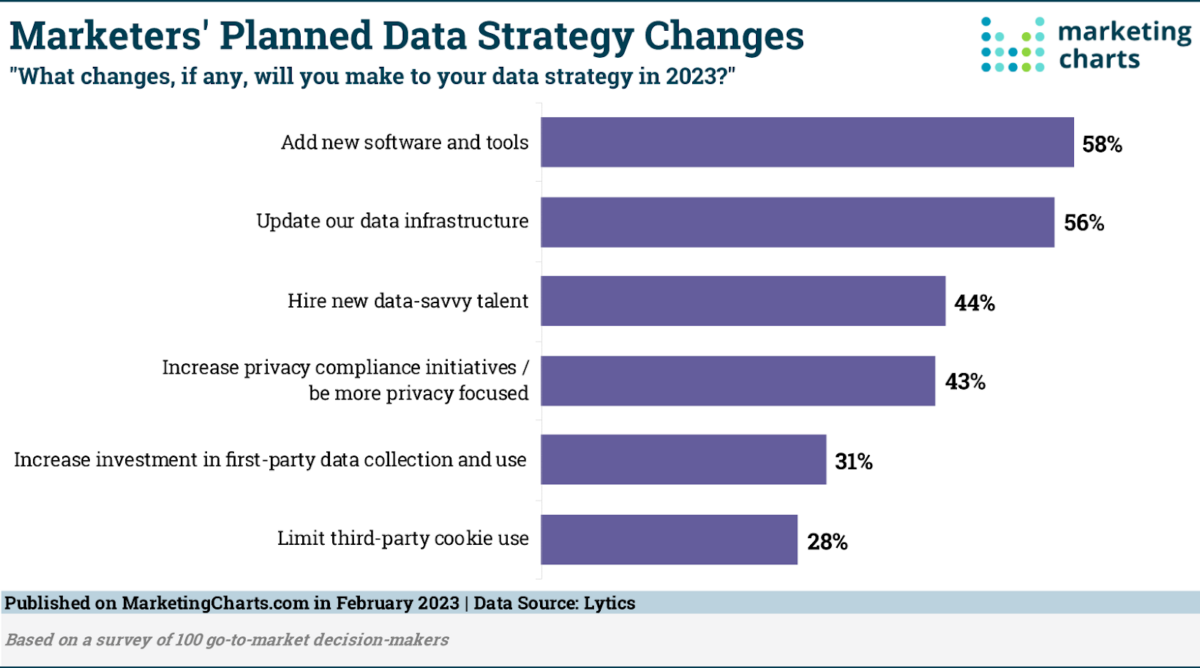
8 B2B Market Research Tools To Use in 2023
The only way to make your marketing work is to know your audience. Dozens of B2B market research tools claim to help you do that, but how can you figure out which ones will really allow you to improve your performance?
Our firm has driven millions of monthly web visits by studying and testing the value of many different marketing tools. Find out the top research tools we’ve used successfully and plan on using in 2023.
Key Takeaways:
- Market research tools are essential for building a successful marketing strategy.
- Top tools help you find the right keywords and see how your content performs online.
- Effective tools provide the data you need to optimize your content for better search engine optimization.
How Can B2B Market Research Tools Help Your Business?
B2B market research tools help you quickly discover insights about your audience, content, and competitors. You can then take that information to fine-tune your marketing strategy and target prospects that fit your ideal customer profile.
The types of marketing tools you should investigate include:
- Content marketing research: To find what content people are consuming and sharing
- Search marketing research: To discover the phrases and keywords that drive traffic to your site and your competitors
- Customer satisfaction research: To get rapid feedback on your product so you can make necessary adjustments
- Social media monitoring: To learn what content works best on social media and who the top influencers are in your market
Content and search marketing offer some of the most actionable and profitable data, so you should dedicate a substantial portion of your efforts and budget to those two.

Which Are the Top 8 B2B Market Research Tools for 2023?
Fill your marketing toolbox with these can’t-miss B2B market research tools.
1. SEMrush
When it comes to search engine optimization and marketing, we love to use SEMrush. Access to advanced features comes at a reasonable price, but you can utilize other components for free.
Use SEMrush to find the keywords you and your competitors rank for. The tool is especially effective at discovering long-tail keywords that a top competitor doesn’t rank for so you can target those in your marketing recipe for success.
2. BuzzSumo
BuzzSumo helps you determine trending topics and compare your performance against your competition. With this data, you can put your marketing budget toward the areas with the highest return on investment.
As you use BuzzSumo, you can set up notifications for keywords, author names, domains, and links to see how your competitors are doing in real time, making this one of the most valuable B2B market research tools.
3. Moz
Moz provides a mix of free and paid elements to meet many SEO demands. You can start with the free features and scale up additional options as you see positive ROI.
One of our favorite features is its competitive research tool to discover keyword gaps, allowing you to target subjects and phrases your competitors are using that you’re not. The MozBar extension even lets you view a site’s metrics as you browse it for user-friendly research.
4. Ubersuggest
Neil Patel has long been a top educator and influencer in the marketing space, so any B2B market research tools he recommends are worth checking out. His Ubersuggest product gives you another perspective on which keywords can enhance your articles to help the right people find your content.
The great thing about this tool is it’s inexpensive and easy to use. One of Ubersuggest’s top features is its rankings on keyword difficulty, which helps you find low-hanging fruit for high-ranking content.
5. Google Analytics
Since Google is the top search engine, you need to understand how web users interact with your site on the platform. Google Analytics helps you do just that.
You can view performance metrics for site content and specific on-page items. You’ll also be able to view key information about the demographics and interests of users on your site so you can measure the effectiveness of your campaigns.
6. Google Search Console
With a Google AdWords account, you have free access to Search Console, one of Google’s best B2B market research tools. You can find out how well your site performs in Google searches and adapt your strategy for better performance.
Search Console’s reports help you discover any technical problems with your site as well. The info lets you resolve such issues quickly before they wreck your rankings.
7. Ahrefs
The greatest strength of Ahrefs lies in its capability to check backlinks. Use this tool to find out which sites link to your competition and replicate those backlinks to build your search engine rankings.

8. Yoast
Yoast helps you optimize your content for search engines by telling you if you’re using your keywords with the right frequency. The tool also makes sure you use your keyword in necessary locations, such as your heading, title, meta description, images, and subheadings.
Yoast also provides readability scores to show if you’re formatting information in a way people want to read it. With an easy-to-use setup, Yoast is another one of the B2B market research tools to investigate.
Why Should You Start Implementing These B2B Market Research Tools Now?
Finding the right mix of B2B market research tools helps you push your growth to new heights and refine your marketing strategy. Take each of these for a test drive and create the right mix for an unstoppable marketing toolbox.
Michael Brenner is a keynote speaker, author and CEO of Marketing Insider Group. Michael has written hundreds of articles on sites such as Forbes, Entrepreneur Magazine, and The Guardian, and he speaks at dozens of leadership conferences each year covering topics such as marketing, leadership, technology and business strategy.